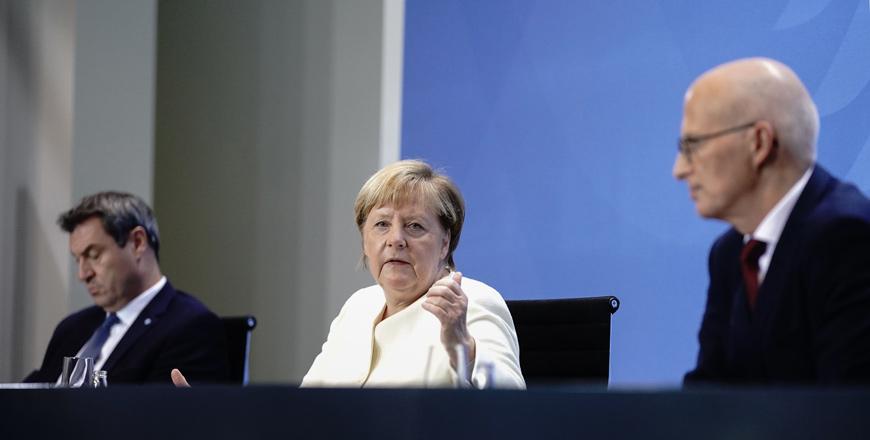- International News
- Web-2020-09-30 | 03:45 pm

Nayrouz News Agency :
Germany will impose a cap on the number of people at parties and family gatherings in areas worst affected by the coronavirus, Chancellor Angela Merkel said on Tuesday after talks with premiers of the country's 16 states.
With recent outbreaks in the country frequently traced to weddings and other private events, Merkel said "a reaction is therefore necessary" to halt the spread of the virus.
Any region where infection rates reach 35 per 100,000 people would be required to impose a cap of 50 people maximum at gatherings in public spaces or rented venues.
If rates shoot up to 50 per 100,000 people, then only 25 people would be allowed at public gatherings.
Federal states failed to agree on rules for private parties at home but Merkel said they "strongly recommend" that people limit guest lists to just 10 at home in the hardest-hit regions.
The chancellor also encouraged citizens to stay in Germany during the upcoming autumn school holidays, given the rapid increase in infection rates in neighbouring European countries.
In addition, Germany will impose fines of at least 50 euros if clients fail to provide real contact details when they dine at restaurants to help with tracing.
"The operators must ensure that people are giving real information... if names like Donald Duck are provided, it is not hard to spot," said Merkel.
In cases of doubt, restaurant owners or hairdressers should ask for identification cards to verify the details, she said, something that could provoke some resistance in Germany where privacy is fiercely guarded.
"We know that more difficult times are before us, namely the autumn and winter months," she said, adding that rising infection numbers are "of course reason for concern".
Merkel reiterated the importance of taking targeted, local action against regional outbreaks, saying another nationwide shutdown "must be prevented".
She warned that new infection numbers in Germany — currently at around 2,000 a day — could leap to 19,200 daily by Christmas if the current trend continued.
Germany began to ease stringent measures including shop closures or limits to the numbers of people meeting from late April, after weeks of lockdown brought new infections down from the peak of around 6,000 daily.
But with larger gatherings going ahead and travel picking up again, particularly during summer holidays, contagion has returned swiftly, bringing current infection numbers to heights last seen at the end of April.













